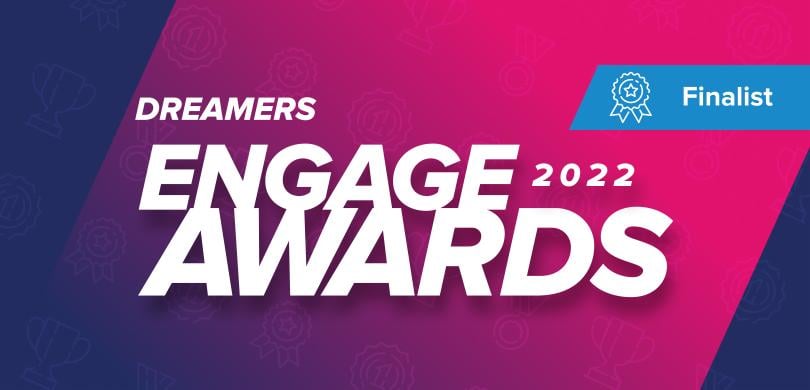
University of East London
Drupal, Acquia Cloud Platform, Acquia Site Studio

The Client
The University of East London (UEL) is a public university in Newham, London, England. The University serves more than 17,000 students from more than 100 countries.
The Situation
UEL focuses on developing skills, emotional intelligence, and creativity needed to thrive in a changing world. Its vision is to advance knowledge and drive innovation for positive change for people and the planet. It aims to prepare students for the jobs of the future and provide the innovation to drive that future sustainably and inclusively by 2028. The UEL website is a digital platform that offers students, research scholars, and employers information on courses, admissions, careers, research opportunities, and more. The University needed an intuitive, accessible, and secure platform that would be capable of providing users with personalized experiences.
The Challenge
UEL’s biggest challenge was to make it easier for site visitors to find information – especially about courses, programs, research work, careers, and immigration. But its existing platform, Sitecore, left much to be desired. The University wanted a holistic and scalable digital experience platform (DXP) that could engage multiple user groups, providing a unified experience for site visitors and content creators alike. It also wanted to enable personalization by gathering precious user data from its connected digital assets, deriving the best insights into the data, and then offering its users personalized experiences.
The Solution
UEL partnered with digital experience design and development partner Axelerant Technologies, which kicked off the project by auditing UEL’s existing Sitecore platform and assessing its ease of use and functional agility. The audit discovered numerous areas for improvement:
- Easy management and integration of features and functionalities
- The ability to future-proof the technology platform and integrate new technologies using APIs
- Adoption of new tools and services for meeting dynamic marketing requirements
- Holistic editorial control and flexibility in the digital platform
- Personalized experiences to optimize the customer journey
- Improved efficiency with automation
- Development and deployment lifecycle automation support
- Easy integration with CI/CD tools
Following the assessment, Axelerant moved forward with its customized continuous discovery and continuous delivery implementation process. The teams worked together to migrate from Sitecore to Drupal and Acquia, ensuring three major benefits: system performance, flexibility, and security.
Axelerant and UEL chose Acquia and Drupal for a range of reasons:
- Open source: Universities especially tend to have a large number of content editors, so systems that charge by user/seat can become very expensive quickly. Drupal being open source mitigates some cost concerns, but also offers flexibility. Higher education institutions tend to have a range of systems behind the scenes. Drupal helps build flexible integrations to integrate the site into workflows and integrations to reduce admin time and increase ROI. Drupal makes building good information architecture, content workflows, and user permissions easy, which is especially important in the higher education sector due to the number of stakeholders and users. They can ensure content is CMA compliant and accurate.
- Accessibility and security: Drupal and Acquia allowed UEL to meet accessibility standards like AA and AAA compliance by utilizing inline accessible forms and other inbuilt features. Additionally, content in Drupal is easily accessible and visible across multiple platforms and formats for prospective and current students and families who need essential information such as enrollment processes, personal accommodations, on-campus events, etc.
- Low code: Acquia Site Studio allows faculty and non-technical educators to publish quiz materials and course descriptions easily. The low-code platform lets UEL quickly spin up course pages by dragging and dropping components. Editors find the interface easy to use and understand, and it offers greater flexibility.
- Personalization: Acquia delivers 360-degree digital experiences that are relevant, immediate, and personalized. Drupal and Acquia allow users to make informed use of browser history, geolocation, behavior taxonomies, and device type to record users' clicks and behavior at each touchpoint. UEL uses geo-location based personalization with Acquia Personalization to improve the enrollment process.
The Results
Axelerant and UEL are measuring the transformation of the experience through attainment of select outcomes:
- Engagement: Increase new users to the website by 5% and establish UEL as a research and blog destination
- Conversion: Improve accessibility beyond the AA WC3 standards
- Site immersions: Increase Twitter followers by 2.5%
- Automation: Shorter time to market by automating areas like bespoke databases, course pages, fees and funding, etc.
Together, Axelerant and UEL are making progress in each of these areas.
